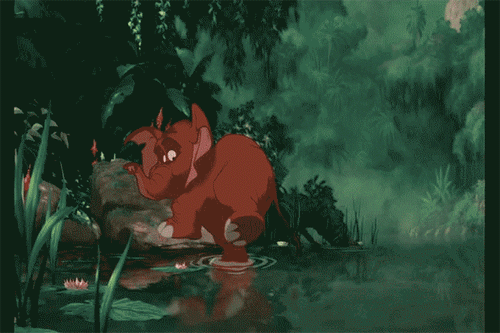Ignorance about evolution is widespread
Evolution, the complex set of mechanisms which explain how the rich diversity of all living organisms came to be, has been scrutinized by many since Charles Darwin published the first complete theory of natural selection in his seminal book, On the Origin of Species, in 1859.
While the large amount of evidence for evolution has withstood the tests of time and scrutiny from competing hypotheses, misconceptions about the biology and parameters of evolution still prevail.
Here are the top 5 misconceptions I find need to be explained most often for those who are not familiar with how evolution works.
5. Humans evolved from monkeys
Some people believe humans descended from and and evolved from monkeys. Some people further postulate that evolution cannot be real because, if humans did evolve from monkeys, there shouldn't be any monkeys left.
We are close relatives with chimps and bonobos; however, we did not evolve from either species. Humans, chimps, and bonobos share a common ancestor which split into sub-populations that later give rise to each individual species.
Humans evolved with, not from, monkeys.
4. Evolution is always slow
While most evolutionary processes occur over tens of thousands to millions and billions of years, there is evidence of "fast" evolution which occurs in decades or a few years.
Strains of bacteria became resistant to penicillin only four years after the drug became available worldwide. Japanese men have grown, on average, 6 inches taller than their ancestors born only a century ago.
3. Humans don't evolve
Every species undergoes evolution; humans are not exceptions to Nature's rule. The example provided in the above point shows that humans are undergoing evolution as our average height increases.
Individual members of a species do not evolve, which makes evolution appear to be absent, but over successive generations, random combinations of genes, mutations, and environmental effects create significant alterations to a population's genetic code (genotype) and outward appearance (phenotype).
The humans of 100,000 years from now will look radically different from our current generation of Homo Sapiens. One day, a new hominid species may even usurp Homo Sapiens for the title of most dominate primate. The evolutionary cycle continues.
2. Evolution disproves the existence of God
Evolution describes the natural world, and it does not cross into questions of metaphysics. The existence of evolution does not disprove the existence of God; however, it has falsified some religious claims. For example, animals did not spontaneously appear in the beginning of life on earth and remain unchanged throughout the ages as Genesis states in the Bible.
Evolution is, by definition, the change in a population's allele frequencies over time. Evolution wouldn't exist if the Genesis creation myth was true.
Though evolution provides a natural, not supernatural, explanation for the diversity of life on earth, it does not negate the possibility, however remote, that a deity created the universe and set evolution in motion as a mechanism of its design.
1. Evolution is "just a theory"
People who say evolution is "just a theory" attempt to downplay the significance of evolution. They use the word "theory" to really mean "opinion," duly implying there is little evidence to support evolution, and other competing hypotheses (creationism) have equal footing with evolution on a scientific level.
Evolution is more than "just a theory." The evidence for evolution is nearly uncountable, and all of its main hypotheses have been tested, verified, verified again, and expanded upon for decades. The existence of evolution is about as certain as one can be about any scientific concept.
Remember, evolution is a scientific theory, which the dictionary defines as "a coherent group of propositions formulated to explain a group of facts or phenomena in the natural world and repeatedly confirmed through experiment or observation".
Evolution is no mere "opinion" or "guess". Evolution is rooted in facts and evidence.
Understanding evolution brightens your life
The world is rich and wondrous, and the complex beauty of life this blind process has produced yields boundless opportunities to understand it further. Evolution is a stepping stone into a real understanding of the natural world.
By pursuing the study of evolution, or even just appreciating the results others uncover, we delve into a journey of worthwhile self-exploration. We embark on a quest to map out the history of life itself.
I will leave you with a quote from Charles Darwin.
"...from so simple a beginning endless forms most beautiful and most wonderful have been, and are being, evolved."























